Matt Rees's Blog, page 27
March 3, 2010
Coffee cultures of Israelis, Palestinians...and Hawaiians
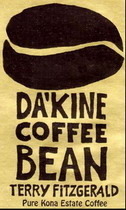 I have a lot of good reasons for staying in the Middle East as long as I have. I admit the main thing keeping me here 14 years and counting may really be inertia, but I also relish being an outsider, researching my Palestinian crime novels on site, visiting the Palestinian towns whose atmosphere of violence, decay and liveliness makes me feel so creative.
I have a lot of good reasons for staying in the Middle East as long as I have. I admit the main thing keeping me here 14 years and counting may really be inertia, but I also relish being an outsider, researching my Palestinian crime novels on site, visiting the Palestinian towns whose atmosphere of violence, decay and liveliness makes me feel so creative.Still, let’s get real: I’m here for the coffee.
There’s no place outside Italy where there’s a more sophisticated coffee culture than Israel, and nowhere on earth do you find yourself cajoled into drinking as much coffee as Palestine.
When I first arrived here, Israelis were drinking one of two kinds of execrable coffees. Middle-aged ladies seemed to go for “Nes,” which despite being the Hebrew word for “miracle” signified only that it was Nescafe instant, served with water so hot that it’d be a miracle if you could taste anything and with enough milk to make it look about the same shade as the skin of the sun-loving ladies who drank it. The alternative was “botz,” which is the Hebrew word for mud. To sum that up: why drink the liquid when you can also have the grounds stuck between your teeth for an hour or two?
In the last decade, however, the number of cafes – hip and less so – in Israel has risen sharply. Everywhere you go, even in Jerusalem and let alone in trendy Tel Aviv, there are bars offering top international brands from the ubiquitous Lavazza to Caffe Mauro and Bristot. It’s an Italian-style espresso-drinking culture and in some of the cafes they even understand how to maintain their espresso machines, thus guaranteeing a good cup.
See, at least there’s one thing about Israel which hasn’t gone to hell in a handbasket over the last decade. Don’t let anyone say I don’t look on the bright side.
Palestinians haven’t changed their style, however. (Which now that I think of it is also a good reflection of their role in the so-called peace negotiations over the past decade.) The way most of them like their coffee is cooked in a narrow-topped tin pan, boiling it over a gas flame with some sugar. “Masbuta,” or “just right,” for coffee with some sugar. “Sada,” or “bitter,” for funerals – and of course for Omar Yussef, the hero of my crime novels.
When in Palestinian towns, you’re greeted at every meeting by a small cup of thick coffee. You have to wait for the grounds to settle and then drink it before you can move beyond the small talk and get down to business. Every meeting, all day. Until you’re buzzing and wondering why all the colors are so bright, even though you’re inside and the shades are drawn. You’re also curious about the stabbing pains in your urethra….
Not that I only have coffee when I go out. Four years ago I quit journalism to work from home on my fiction. I get a monthly delivery of Lavazza for my home machine. It comes straight from the importer. Perhaps it’s the quantity I consume, but they seem to believe they’re delivering to a business address. Naturally I tell them I have an extensive staff, each of whom needs a lot of coffee, and that’s why they need to make an extra delivery again this month…
So with coffee being that central to my existence here, I was particularly intrigued to hear from a reader of my novels – and of this blog – named Terry Fitzgerald. TF informed me that my fellow blogger and terrific author of Bangkok crime novels Christopher G. Moore had signaled his approval of Terry’s Da’kine Coffee Bean, which he produces in Honaunau, Hawaii. He kindly offered to send me along a batch.
Now I used to be a journalist – when someone offers me something free, I’ll go to extraordinary lengths to secure it. In this case, I made several visits to my local branch of the Israeli Postal Service whence I eventually was able to wrest a bag of Terry’s prize-winning bean. (Check him out).
I’ve offered Da’kine to some Israeli friends, who commented with pleasure on its redolence of the most deliciously bitter of dark chocolate. I took it into Bethlehem for a rendez-vous with the real Omar Yussef. He drank it without sugar and with approval. As is traditional for a Palestinian when accepting a coffee, he said: “May Allah bless your hands. May there always be coffee in your home.”
This brand, too, I hope.
(I posted this on International Crime Authors Reality Check, a joint blog for me and three other authors of -- obviously -- international crime novels. Take a look.)
Published on March 03, 2010 23:03
•
Tags:
arab-coffee, blogs, botz, bristot, caffe-mauro, christopher-g-moore, coffee, da-kine-coffee-bean, espresso, hawaii, hawaiian, honaunau, israel, israeli, jerusalem, lavazza, masbuta, middle-east, nescafe, omar-yussef, palestine, palestinian, sada, tel-aviv, terry-fitzgerald
March 2, 2010
Gumshoe Review: THE FOURTH ASSASSIN 'excellent'...and a list of crime fiction good, bad and pointless
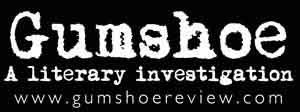 Top crime fiction blog Gumshoe Review rates my new Palestinian crime novel THE FOURTH ASSASSIN very highly: "Rees does an excellent job of showing the pressures on the young Palestinians and describing the microcosm of one immigrant community within the U.S. The mystery also contains plenty of twist and turns." Read Mel Jacobs's full review.
Top crime fiction blog Gumshoe Review rates my new Palestinian crime novel THE FOURTH ASSASSIN very highly: "Rees does an excellent job of showing the pressures on the young Palestinians and describing the microcosm of one immigrant community within the U.S. The mystery also contains plenty of twist and turns." Read Mel Jacobs's full review.If you feel compelled to read any other crime fiction but mine -- or if you've already read all my books -- I'd direct you to a list of the 100 Best Crime Books on the Court Reporter blog. Many of the selections are hardly surprising -- you're not likely to say to yourself, "Oh, The Maltese Falcon, how'd they come up with that?" Well, if you DO say that, then you've probably got 100 new books for your nightstand, because surely you can't have read any crime fiction BEFORE you read The Maltese Falcon. That's just unacceptable! Anyway, much of the rest of the list comprises overrated twaddle (dragon tattoos, for example) which has somehow become accepted as a staple of the genre (several genres in fact, because the list includes true crime, thrillers and slasher stuff), classics which to those who bother to read them these days will be head-scratchingly dull, and many others which are fiendishly outdated to the modern reader (yes, Sherlock Holmes fans, I'm talking to you). But you may find something you didn't know about, so take a look.
Published on March 02, 2010 02:21
•
Tags:
bay-ridge, blogs, brooklyn, court-reporter, crime-fiction, dashiell-hammett, gumshoe-review, lists, little-palestine, mel-jacobs, new-york, palestine, palestinian, reviews, sherlock-holmes, stieg-larsson, the-fourth-assassin, the-girl-with-the-dragon-tattoo, the-maltese-falcon, united-nations
February 28, 2010
How does that grab you? Great openings to new books
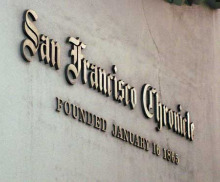 The first line of a great novel tends also to have a lot of punch -- to "grab" you. My all-time favorite is "The Sun Also Rises," which manages to tell you a great deal about one of the main characters, but even more about the narrator: "Robert Cohn was once middleweight boxing champion of Princeton. Do not think that I am very much impressed by that as a boxing title, but it meant a lot to Cohn." This weekend The San Francisco Chronicle has a feature called "Grabbers--first sentences from new books," in which the 'paper highlights good openings to some recent books by Katharine Beutner and Malcolm Nance, among others. The 'paper was good enough to include among those they commend the first lines of THE FOURTH ASSASSIN, my new Palestinian crime novel: "As he left the R train and came up the narrow, gum-blackened steps from the Fourth Avenue subway in Brooklyn, Omar Yussef glanced around for armed robbers and smiled." Do you have a favorite opening from current fiction or nonfiction?
The first line of a great novel tends also to have a lot of punch -- to "grab" you. My all-time favorite is "The Sun Also Rises," which manages to tell you a great deal about one of the main characters, but even more about the narrator: "Robert Cohn was once middleweight boxing champion of Princeton. Do not think that I am very much impressed by that as a boxing title, but it meant a lot to Cohn." This weekend The San Francisco Chronicle has a feature called "Grabbers--first sentences from new books," in which the 'paper highlights good openings to some recent books by Katharine Beutner and Malcolm Nance, among others. The 'paper was good enough to include among those they commend the first lines of THE FOURTH ASSASSIN, my new Palestinian crime novel: "As he left the R train and came up the narrow, gum-blackened steps from the Fourth Avenue subway in Brooklyn, Omar Yussef glanced around for armed robbers and smiled." Do you have a favorite opening from current fiction or nonfiction?
Published on February 28, 2010 01:29
•
Tags:
alcestis, american-fiction, bay-ridge, brooklyn, crime-fiction, ernest-hemingway, general-fiction, katharine-beutner, little-palestine, malcolm-nance, new-york, newspapers, novel-openings, omar-yussef, opening-lines, palestine, palestinians, robert-cohn, san-francisco, san-francisco-chronicle, the-fourth-assassin, the-sun-also-rises
February 26, 2010
New York Times Book Review: THE FOURTH ASSASSIN 'engrossing,' 'New Yorkers will be startled'
"New Yorkers are bound to be startled by the views of their city advanced by Matt Beynon Rees in THE FOURTH ASSASSIN (Soho). In his new mystery featuring Omar Yussef, a Palestinian who teaches history at a school for girls in Bethlehem, Rees, a former Jerusalem bureau chief for Time magazine, brings his series’s hero to New York for a conference at the United Nations. But first, Yussef visits “Little Palestine,” in the Bay Ridge section of Brooklyn, where his youngest son lives — and stumbles onto the headless corpse of one of his son’s roommates. Over the course of an engrossing investigation conducted by a Palestinian-born New York detective, Yussef is educated in the harsh views of Arabs in some quarters of the city and exposed to the simmering anger of young Arabs like his son. Even more distressing, he sees how his Middle Eastern brethren have brought to America the same animosities that made them bad neighbors back home."
Published on February 26, 2010 22:59
•
Tags:
arab, bay-ridge, brooklyn, crime-fiction, detective-fiction, little-palestine, marilyn-stasio, middle-east, new-york, new-york-times-book-review, omar-yussef, palestine, palestinians, reviews, the-fourth-assassin, the-new-york-times, time-magazine, united-nations
Born Hamas, turned Shin Bet
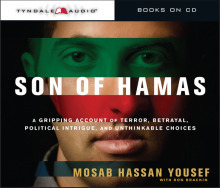 How the son of a Hamas founder ended up an Israeli agent, as told by the "Green Prince" himself. (I posted this on GlobalPost)
How the son of a Hamas founder ended up an Israeli agent, as told by the "Green Prince" himself. (I posted this on GlobalPost)RAMALLAH, West Bank — Parents often lament that their kids don’t follow them into their chosen professions. They ought to think themselves lucky. They could be Sheikh Hassan Youssef, a founder of the Islamic militant group Hamas whose son converted to Christianity and became a key Israeli agent.
Mosab Hassan Youssef, 32, reveals his secret life in a book published this coming week “Son of Hamas: A Gripping Account of Terror, Betrayal, Political Intrigue, and Unthinkable Choices” (Salt River Press).
A few days ago on his Facebook fan page, Youssef announced that he’d given an interview with the Israeli newspaper Ha’aretz about the contents of the book. “The story will blow your minds away, it is going to be like a tsunami in the Middle East, couple of days later it will spread like a wild fire,” he wrote.
The tsunami was that Youssef’s previous account of his struggles — that he had turned against the violent ways of Hamas and, consequently, rejected Islam as a religion of hatred and violence — wasn’t the whole story. In fact, Youssef had been an agent for the Israeli Shin Bet domestic security service during the intifada, informing on the very organization of which his father, Sheikh Hassan, was a prominent leader.
His actions earned Youssef the codename “Green Prince” from the Shin Bet, a reference to the Islamic green of Hamas’s flags.
The account in Ha’aretz was verified by Gideon Ezra, an Israeli legislator who’s a former deputy chief of the Shin Bet.
Youssef’s father was a founder of Hamas and is currently serving a six-year sentence in an Israeli jail. The younger Youssef has said that he turned against Hamas when he realized that his father, who’s seen as a relative moderate, didn’t represent the heart of the organization. Youssef saw that core as rotten with a self-destructive hatred that brought down disaster on the Palestinian people.
Sheikh Youssef’s reputation as a moderate, of course, doesn’t preclude him giving fiery speeches about the victory of Islam in battle — which I witnessed several times at his mosque in al-Bireh, a city abutting Ramallah.
The sheikh’s broad white mosque with its plain carpeted floors is a long way from the Barabbas Road Church in San Diego, Calif., where Mosab Youssef now worships.
In 2005, the last time I saw Sheikh Hassan during the intifada, he claimed that as a representative of Hamas he was in contact with U.S. diplomats via a European intermediary. “And I know that what I tell the Americans they will tell Israel,” he said, “so, yes, I’m talking to the Israelis.”
In Hamas, that makes him pretty moderate.
The following week, Sheikh Hassan was arrested by the Shin Bet (with the aid of his son, it turns out).
In prison, according to Mosab Youssef, his father was devastated by the news that his son had become a Christian. The sheikh refused to disown his son, however, because that would imply consent to the boy’s murder.
Former Shin Bet deputy chief Ezra said Mosab Youssef was recruited as an agent while being held in an Israeli jail. Ezra, like several anonymous Shin Bet sources quoted by Ha’aretz, said Youssef’s information helped prevented numerous suicide bombings and saved many Israeli lives.
Most Palestinian informers — or collaborators, as Palestinians call them — are recruited either in jail or when they visit Israeli military bases to obtain travel permits. The collaboration begins with something small and apparently harmless, in return for permission to travel through army checkpoints for medical treatment in Jerusalem, say. By the time the Palestinian realizes he’s a fully fledged collaborator, the Shin Bet are able to control him by the threat of exposure.
In Mosab Youssef’s case, no such threats were needed, it seems. In the Ha’aretz interview, he expresses a desire to be in Gaza so that he could secure the release of Gilad Shalit, the Israeli soldier held hostage there, and end the suffering of Gaza’s people under the Hamas regime.
A Hamas leader, Ismail Radwan, denounced the report as an attempt to undermine Sheikh Youssef’s standing. "The Palestinian people have great confidence in Hamas and its struggle and they will not be fooled by this slander and these lies of the Israeli occupation," he said.
Published on February 26, 2010 04:42
•
Tags:
california, collaborators, crime-fiction, global-post, green-prince, hamas, informers, intifada, israeli-agent, israeli-intelligence, middle-east, mosab-hassan-yousef, ramallah, san-diego, sheikh-hassan-yousef, shin-bet, west-bank
February 24, 2010
Inventing the Palestinian detective
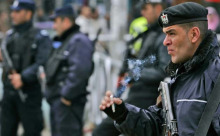 The dead man's mother raged and wept as she told me how she’d discovered her son’s body, in the cabbage patch outside her home. She’d gone down on her knees, she said, touched his blood and wiped her fingers on her face, calling out that God is most great.
The dead man's mother raged and wept as she told me how she’d discovered her son’s body, in the cabbage patch outside her home. She’d gone down on her knees, she said, touched his blood and wiped her fingers on her face, calling out that God is most great.As the winter wind came cold off the Judean Desert, I watched her tears and thought: “I have to write a novel about this.”
Forgive me if that sounds callous, but I’m a writer. Or, I should say, that’s the moment when I became a writer.
I was Time Magazine’s Jerusalem bureau chief, covering the violence of the Palestinian intifada, when I went to that bereaved mother in her village on the edge of Bethlehem in 2002. I had always written fiction, but only published a few short stories. In the midst of the despair that engulfed Israelis and Palestinians, I found the very thing that could make me happy – the material for my series of Palestinian crime novels.
The killing of that woman’s son as he crept home in the dark was the basis for the opening death in my first novel “The Collaborator of Bethlehem.” The book won a Crime Writers Association Dagger. Since then I’ve published two more crime novels set in the Palestinian towns.
They’re a response to the emotional questions that, as a journalist, I was never able to answer. Strangely, fiction proves to be a better way to understand extreme events than journalism.
Since the first time I set foot in the West Bank in 1996, I had grown disillusioned with the ability of journalism to convey the depth of what I learned about the Palestinians. Back then, I visited the family of a Nablus man tortured to death in one of Yasser Arafat’s jails. The news article I wrote was a good one, uncovering the internal Palestinian violence so often overshadowed by the more spectacular conflict with Israel. But my impressions were much deeper.
I was struck by the candor and dignity with which the dead youth’s family spoke to me; the sheer alien nature of the place thrilled me. At the entrance to the family’s house in the casbah, an old oil drum held black flags and palm fronds, symbols of Islamic mourning. Men sat around smoking under a dark awning. I felt a powerful sense of adventure, as though I had uncovered an unknown culture.
The lawlessness of Palestinian life also gave me great characters for my fictionalized good guys. But also the villains. Unfortunately there are many Palestinians who have strong motivations to kill each other. I’ve spent a lot of time over the years with some of these men, trying to learn why they take the path of violence—time that has led to a deeper characterization of the villains in my books.
With my new novel, “The Fourth Assassin,” I brought my sleuth Omar Yussef to New York because I wanted him to confront the most important issue of the last decade – an issue which is crystallized in its most horrifically concrete form in the city of 9/11.
It’s a natural progression for a series that began in the cabbage patch near Bethlehem. When I stood there, it was seven months after the attacks on New York and Washington. The questions posed to anyone thinking about the Middle East had just become so much more complex. Too complex and emotional for journalism to encompass them and, all these years later, for politicians, too.
Whether it’s a single sniper’s bullet cutting through the chest of a man outside his mother’s house or a jetliner bursting through a 110-story building, my novels are aimed at the most explosive points in our recent history. That’s why I simply had to write them.
(I posted this on a joint International Crime Authors blog I write with three other writers. Check it out.)
Published on February 24, 2010 22:49
•
Tags:
9-11, assassination, bethlehem, blog, brooklyn, crime-fiction, journalism, judean-desert, middle-east, new-york, omar-yussef, sniper, the-collaborator-of-bethlehem, the-fourth-assassin, time-magazine, united-nations, washington, west-bank, yasser-arafat
February 23, 2010
The UK Crime Fiction Insider: Duncan Campbell's Writing Life
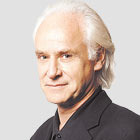 One of the great pleasures of life as a writer is being paired with interesting authors when you speak at book fairs. (It's also an occasional rough ride when you find yourself stuck with a bum who can't write, but I'm being nice here so I won't go into any of those.) The most delightful fellow I've ever met in this way is Duncan Campbell with whom I was paired at the book fair in his native Edinburgh two years ago. He also happens to be the British crime writer with the best knowledge of the UK's criminal fraternity -- which he covered for three decades for The Guardian, famously managing to be liked by all the old lags he wrote about. His latest novel, "If It Bleeds," focuses on the nexus of crime and crime journalism. It's hilarious and rather chilling -- particularly so for an ex-journalist such as myself whose nightmares are much more likely to take place in a newsroom than in criminal haunts. Duncan's previous novel "The Paradise Trail" drew on his experience of the "hippie trail" in India in the early 1970s. Like "If It Bleeds," it drew on his own experiences, but had much more than mere authenticity -- drugs, dirt, noise and hippie naivete -- to recommend it. In a review, my esteemed fellow Welshman (and former hashish kingpin) Howard Marks wrote: "The dialogue...is the wittiest I have read in any work of fiction, including Catch-22, my hitherto favourite. The fascinating historical and cultural context is unobtrusively drip-fed, and the whodunit suspense masterfully created." He also said the drug stuff was on the money. Here's Duncan on writing and on the life he lives around it:
One of the great pleasures of life as a writer is being paired with interesting authors when you speak at book fairs. (It's also an occasional rough ride when you find yourself stuck with a bum who can't write, but I'm being nice here so I won't go into any of those.) The most delightful fellow I've ever met in this way is Duncan Campbell with whom I was paired at the book fair in his native Edinburgh two years ago. He also happens to be the British crime writer with the best knowledge of the UK's criminal fraternity -- which he covered for three decades for The Guardian, famously managing to be liked by all the old lags he wrote about. His latest novel, "If It Bleeds," focuses on the nexus of crime and crime journalism. It's hilarious and rather chilling -- particularly so for an ex-journalist such as myself whose nightmares are much more likely to take place in a newsroom than in criminal haunts. Duncan's previous novel "The Paradise Trail" drew on his experience of the "hippie trail" in India in the early 1970s. Like "If It Bleeds," it drew on his own experiences, but had much more than mere authenticity -- drugs, dirt, noise and hippie naivete -- to recommend it. In a review, my esteemed fellow Welshman (and former hashish kingpin) Howard Marks wrote: "The dialogue...is the wittiest I have read in any work of fiction, including Catch-22, my hitherto favourite. The fascinating historical and cultural context is unobtrusively drip-fed, and the whodunit suspense masterfully created." He also said the drug stuff was on the money. Here's Duncan on writing and on the life he lives around it:How long did it take you to get published?
I was lucky. I had written an article about Billy Connolly, the terrific Scottish comedian, in Time Out magazine. It was 1975 and he was just about to become very big so Pan, the publishers, wanted a speedy book about him. They asked me if I would like to go on tour with him and write it, with his cooperation. You kidding?
Would you recommend any books on writing?
George Orwell’s essay, Politics and the English Language. The Guardian (where I worked for 22 years, ) Style Book is very helpful.
What’s a typical writing day?
When I was a carefree, young freelance journalist, I would write until the early hours of the morning, with music playing in the background. Now I do all my ‘best work’ ho, ho, in the morning. When I wrote my two novels, I worked a five-day week and aimed for 2000 words a day. I thought this was impressive but an old pal, Jim McClure, who very sadly died a couple of years ago, told me that when he wrote his great prize-winning South African crime novels, he would work from 9 am till 5 am every day for two weeks and have a book at the end of it. He was South African but, obviously, with Scottish Calvinist roots.
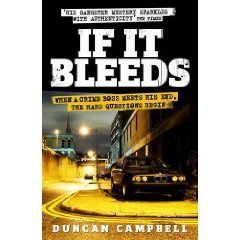
Plug your latest book. What’s it about? Why’s it so great?
It’s called If It Bleeds, (Headline) which is taken from the old newsroom motto - ‘if it bleeds, it leads’, i.e., if it’s about murder and gore, it goes on the front page or at the top of a news bulletin. It’s about a 50-something crime reporter called Laurie Lane who is asked by an old London gangster, Old Man Hook, to ghost his autobiography. Soon after that, the gangster is shot dead. Laurie has his own problems as his country singer wife has left him for an older man, his teenage daughter is meant to be doing her A levels and he is being investigated by his digitally-snooty news editor for fiddling his expenses. (I promise you, it’s not autobiographical.) Can Laurie find out who killed the gangster and save his job? Could it be the Russian hoods who want a slice of the Hooks’ clubland business? The gangster’s own family? Bent coppers? What’s the Thailand connection? So it’s about crime and crime reporting and bad jokes told by a veteran crime reporter called ‘the Vicar’. Now read on...
How much of what you do is:
a) formula dictated by the genre within which you write?
b) formula you developed yourself and stuck with?
c) as close to complete originality as it’s possible to get each time.
I think most of us are slaves - or at least indentured labour - to the genres in which we work. My earliest ‘grown up’ reading was Agatha Christie and I read as many of her as I could. I went on to lots of Graham Greene and Evelyn Waugh. Their ghosts must hover somewhere.
What’s your favorite sentence in all literature, and why?
Anything by Groucho Marx on a good day.
What’s the best descriptive image in all literature?
John Kennedy Toole creates some spectacular images in A Confederacy of Dunces.
Who’s the greatest stylist currently writing?
Someone just gave me an old copy of James Cameron’s Point of Departure, which I had not read for a while. He writes with lucidity, grace, humour. Quite a feat. Scottish, of course. I know he’s dead but his copy is as alive as ever.
Who’s the greatest plotter currently writing?
Gosh. Tempted to say Alistair Campbell (no relation.) John le Carre?
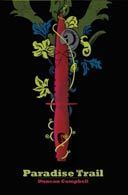
How much research is involved in each of your books?
I’ve written three non-fiction books on crime: That Was Business, This Is Personal; The Underworld; and A Stranger and Afraid. They all required quite a lot of research which I - mostly - enjoyed. The two novels, The Paradise Trail and If It Bleeds, were both the result of decades and decades of diligent research which I imagined, at the time, was life.
Where’d you get the idea for your main character?
Pathetically, the main characters in both novels have a lot of me in them.
Do you have a pain from childhood that compels you to write? If not, what does?
I think if I had had a more painful childhood, I might have been a better writer. But who do you complain to?
What’s the best idea for marketing a book you can do yourself?
If you are a journalist working for a publication, you can always try and persuade the features department to run a piece to coincide with a book’s publication. Fortunately, the places I have worked have had the sweetest, most decent and, I would say, the most perceptive of people working in those departments.
What’s your experience with being translated?
If I could speak a word of Swedish or Norwegian, I would let you know.
Do you live entirely off your writing? How many books did you write before could make a living at it?
I have always lived off my ‘writing’ but that has mainly been journalism. I don’t know many people who make a living solely from books.
How many books did you write before your first one was published?
I wrote a book called The Walking Wounded in 1972, which was based in Calcutta and which was sensibly rejected by a publisher in San Francisco at the time. I hung on to the manuscript for 32 years and used it as source material for The Paradise Trail. Waste not, want not.
What’s the strangest thing that happened to you on a book tour?
I can’t say at the moment because I want to make use of it, in a slightly shameful way, in a book which I have yet to write.
What’s your weirdest idea for a book you’ll never get to publish?
I’d like to do a graphic novel about crime but am hampered by the fact that I can’t draw.
Published on February 23, 2010 10:07
•
Tags:
billy-connolly, british-crime-fiction, catch-22, crime-fiction, duncan-campbell, edinburgh, edinburgh-book-fair, evelyn-waugh, george-orwell, graham-greene, groucho-marx, hippie-trail, hippies, howard-marks, if-it-bleeds, india, scotland, the-guardian, the-paradise-trail, time-out
February 21, 2010
Book of A Lifetime: The King Must Die
 The Independent runs a periodical feature in which it picks authors to write about a book which changed their lives. Last week the London newspaper asked me to write the piece. Here it is:
The Independent runs a periodical feature in which it picks authors to write about a book which changed their lives. Last week the London newspaper asked me to write the piece. Here it is:In early 1999, King Hussein fell sick on his return from cancer treatment in the US. I was Middle East correspondent for The Scotsman. Many colleagues with bigger expense budgets were already in Jordan on death watch. I poked through a second-hand bookshop on a narrow lane in Jerusalem, wondering if I ought to go too.
I picked up a 1958 edition of The King Must Die by Mary Renault. The title seemed like a good joke to share with my fellow hacks. It decided me. I paid a few shekels for it and went off happily to pack for a trip across the Jordan Valley.
Renault took the myth of Theseus and the Minotaur and constructed a novel of the historical circumstances which may have lain behind it. In the novel, the young hero becomes a champion "bull-dancer" in Crete, leaping over charging animals, and escapes to become king in Athens. Renault's sensitive characterisation and historical sense of place hooked me. In her day (she died in 1978) other writers often suggested Renault was really a male homosexual, assuming that a woman couldn't write so vividly about men. I've striven for that depth of empathy in writing about a foreign culture in my novels.
Renault's approach to Greek history shaped my Palestinian crime novels. Writing at a time when frank examinations of contemporary homosexuality – Renault was lesbian – were taboo, she made her readers look again at love between people of the same sex. She placed that love in the context of history and stories we all think we know – the Minotaur, the trial of Socrates, Alexander's conquests – and then forced us to accept that the heroes of that period had a starkly different view of sexuality. In other words, she redirected us from the myth to the reality.
I've tried to do that with the Palestinians, who are stereotyped in the news as victims or as terrorists, and so I have focused instead on real people I've known, aiming to get at the depth of their emotions.
As for Hussein, he succumbed to lymphoma. That night, after deadline, reporters packed the bar of the Intercontinental, sucking on fat Habanas and downing Laphroaig, excited by a get-together with colleagues usually spread across the region. The next day, Hussein's cortege passed through sombre crowds in the wind and rain. I happened to laugh at a remark by another journalist. An old Bedouin turned tearful, red eyes on me. I was ashamed of my laughter. For him, this wasn't a news story or even history. It was the passing of someone who had been important in his life.
It's his emotion that I remember about that day, rather than the newspaper prognostications for the political future of the Middle East, and emotion is the heart of a novel, even a political novel. Throughout the funeral, The King Must Die was in my pocket.
Matt Rees's 'The Fourth Assassin' is published by Atlantic
Published on February 21, 2010 23:05
•
Tags:
alexander-the-great, brooklyn, bull-dancer, crete, crime-fiction, greece, greek-history, homosexual-literature, jerusalem, jordan, jordan-valley, king-hussein, london, mary-renault, middle-east, minotaur, new-york, omar-yussef, palestine, palestinian, socrates, the-fourth-assassin, the-independent, the-king-must-die, the-scotsman, theseus
February 20, 2010
Palestinian sex-for-favors scandal
Was Israeli intelligence really behind the video showing an Abbas aide soliciting sex? (I posted this on Global Post.)
Devotees of Jamaican reggae singer Shaggy will already be familiar with the strategy of a Palestinian official caught with his pants down — to tell the truth, with his pants entirely off — in a sex scandal last week.
On his 2001 hit disc “Hot Shot,” Shaggy tells a friend caught in flagrante delicto to “Say it wasn’t me” when his girlfriend discovers him naked on the bathroom floor with another woman. That’s just what the Palestinian leadership is doing on behalf of Rafik Husseini, bureau chief to Palestinian President Mahmoud Abbas.
Husseini was recorded on a hidden video camera stripping naked and attempting to persuade a Palestinian woman to get into bed with him (though one may assume the bathroom floor would’ve done just as well for him.) She had, as far as he knew, come to him needing a job in his office. In fact, the assignation was a sting.
But a sting by whom?
Like everything else in the world of the Palestinian Shaggies, by Israel of course. Except that it most likely wasn’t. That’s just the automatic reaction of Palestinian leaders — like the leadership of much of the Arab world — when they want to discredit someone.
In fact, the sting was set up by Fahmi Shabaneh, head of a Palestinian intelligence unit investigating corruption.
The video that Shabaneh gave to Israeli television shows Husseini disrobing and getting into bed. He speaks to a woman who isn’t seen in the shot: “Do I turn off the light or do you?"
The clip resulted in Husseini’s suspension for soliciting sex in return for favors. His boss, President Abbas, announced a commission to investigate allegations that this wasn’t the first time Husseini used his position to coerce sex.
Husseini’s defense has been to argue in a statement that he’s being targeted by unnamed organizations. He doesn’t mention Israel, but other Palestinian leaders and the Maan news agency have directly accused Israel of being behind the video. Israel’s intention, the argument goes, is to embarrass Husseini’s boss, because Abbas refuses to return to peace negotiations until Israel truly does halt construction in its West Bank settlements.
Undoubtedly Israel isn’t shy of dirty tricks. The government of Dubai this week released details of the team of assassins who killed a Hamas operative there Jan. 20 in his hotel room. The European passports the assassins carried were, in some cases, in the name of current British-Israeli citizens (who all deny involvement and whose faces don’t match the photos released by Dubai).
The track record of Israel’s foreign intelligence organization, the Mossad, would suggest that this was, indeed, an Israeli operation. So does the response of respected intelligence columnists in the Israeli press, whose response to the international outrage about the falsified passports could be summed up as, “So what? We got away with it — not that we’re saying it was us.”
There might possibly be some hidden level of Israeli involvement in Shabaneh’s case. But anyone with knowledge of recent Palestinian politics will understand that the Ramallah leadership has never needed Israeli help when it comes to corruption or infighting.
Shabaneh has been held for some months by Israel for operating as a member of the Palestinian General Intelligence Service while a resident of Jerusalem, which is under Israeli control. The heart of Husseini’s defense is that, while in custody, Shabaneh agreed to give the Israelis dirt that would discredit Abbas’ office.
That might fly if the Israelis had set Shabaneh to entrap Husseini. But Shabaneh was acting under the orders of his boss in General Intelligence, Tawfik Tirawi. And Shabaneh says he showed the incriminating video to Abbas himself a year ago, before his own detention, and the Palestinian president refused to take action against Husseini.
Palestinian politics is forgiving of those discovered to be corrupt, because of the Shaggy defense (“No, that was an Israeli agent on the bathroom floor. It wasn’t me.”) Husseini’s hope is that discrediting Shabaneh will rescue him. But he’ll probably have more trouble than the Mossad getting away with this particular piece of wickedness.
Devotees of Jamaican reggae singer Shaggy will already be familiar with the strategy of a Palestinian official caught with his pants down — to tell the truth, with his pants entirely off — in a sex scandal last week.
On his 2001 hit disc “Hot Shot,” Shaggy tells a friend caught in flagrante delicto to “Say it wasn’t me” when his girlfriend discovers him naked on the bathroom floor with another woman. That’s just what the Palestinian leadership is doing on behalf of Rafik Husseini, bureau chief to Palestinian President Mahmoud Abbas.
Husseini was recorded on a hidden video camera stripping naked and attempting to persuade a Palestinian woman to get into bed with him (though one may assume the bathroom floor would’ve done just as well for him.) She had, as far as he knew, come to him needing a job in his office. In fact, the assignation was a sting.
But a sting by whom?
Like everything else in the world of the Palestinian Shaggies, by Israel of course. Except that it most likely wasn’t. That’s just the automatic reaction of Palestinian leaders — like the leadership of much of the Arab world — when they want to discredit someone.
In fact, the sting was set up by Fahmi Shabaneh, head of a Palestinian intelligence unit investigating corruption.
The video that Shabaneh gave to Israeli television shows Husseini disrobing and getting into bed. He speaks to a woman who isn’t seen in the shot: “Do I turn off the light or do you?"
The clip resulted in Husseini’s suspension for soliciting sex in return for favors. His boss, President Abbas, announced a commission to investigate allegations that this wasn’t the first time Husseini used his position to coerce sex.
Husseini’s defense has been to argue in a statement that he’s being targeted by unnamed organizations. He doesn’t mention Israel, but other Palestinian leaders and the Maan news agency have directly accused Israel of being behind the video. Israel’s intention, the argument goes, is to embarrass Husseini’s boss, because Abbas refuses to return to peace negotiations until Israel truly does halt construction in its West Bank settlements.
Undoubtedly Israel isn’t shy of dirty tricks. The government of Dubai this week released details of the team of assassins who killed a Hamas operative there Jan. 20 in his hotel room. The European passports the assassins carried were, in some cases, in the name of current British-Israeli citizens (who all deny involvement and whose faces don’t match the photos released by Dubai).
The track record of Israel’s foreign intelligence organization, the Mossad, would suggest that this was, indeed, an Israeli operation. So does the response of respected intelligence columnists in the Israeli press, whose response to the international outrage about the falsified passports could be summed up as, “So what? We got away with it — not that we’re saying it was us.”
There might possibly be some hidden level of Israeli involvement in Shabaneh’s case. But anyone with knowledge of recent Palestinian politics will understand that the Ramallah leadership has never needed Israeli help when it comes to corruption or infighting.
Shabaneh has been held for some months by Israel for operating as a member of the Palestinian General Intelligence Service while a resident of Jerusalem, which is under Israeli control. The heart of Husseini’s defense is that, while in custody, Shabaneh agreed to give the Israelis dirt that would discredit Abbas’ office.
That might fly if the Israelis had set Shabaneh to entrap Husseini. But Shabaneh was acting under the orders of his boss in General Intelligence, Tawfik Tirawi. And Shabaneh says he showed the incriminating video to Abbas himself a year ago, before his own detention, and the Palestinian president refused to take action against Husseini.
Palestinian politics is forgiving of those discovered to be corrupt, because of the Shaggy defense (“No, that was an Israeli agent on the bathroom floor. It wasn’t me.”) Husseini’s hope is that discrediting Shabaneh will rescue him. But he’ll probably have more trouble than the Mossad getting away with this particular piece of wickedness.
Published on February 20, 2010 23:29
•
Tags:
abu-mazen, dubai-israeli, fahmi-shabaneh, hot-shot, israel, it-wasn-t-me, jamaica, mahmoud-abbas, middle-east, mossad, palestine, palestinian, rafik-husseini, reggae, sex-scand
February 18, 2010
Espionage is a dirty business
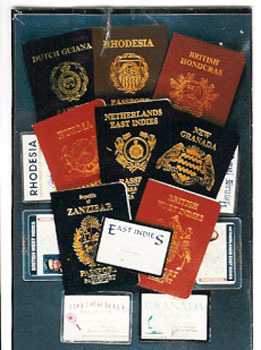 You’d think there was something wrong with spying.
You’d think there was something wrong with spying.People pay rather a lot of money to watch Daniel Craig dispose of villains in the bloodiest fashion. They nod in approval when M pushes 007’s perfect false passport across the desk. Yet everyone seems to be peeved about what in all likelihood is a Mossad hit against a Hamas operative in his Dubai hotel room on January 20.
Oh, that’s right, because the Hamas guy – meanies though Hamas might be – was a real human being who’s now dead, after all.
No, wait, that isn’t it. Western governments don’t really care about dead Arabs. If they did, they wouldn’t have sent Tony Blair to be the Middle East peace-process point man for the Quartet (the UN, the US, the EU and Russia), even though it ought to be perfectly clear that the only person disliked more in the Arab world than the stammering King of Cool Britannia is the future head librarian of the Presidential Library in Crawford, Texas. (Why so unpopular? Started a war that killed a lot of Iraqis, that’s why. Arabs do care about dead Arabs…sometimes.) So it isn’t the dead guy that’s behind the international fuss.
Ah, that’s right. These spies used our passports. Of the 11 assassins identified by Dubai’s police chief this week, all were carrying British, Irish, German or French passports. Three of the British passports carried the near-perfectly correct details of three Brits who’ve also taken up Israeli citizenship. Three others included names similar to European-Israeli citizens, though other details were incorrect.
To a crime novelist, the passport thing seems pretty tame. I suspect that, actually, the Euro pols and dips would like to lambaste Israel for the hit itself. They can’t quite bring themselves to do it, because, after all, Islamic extremism is the West’s current Enemy Number One. And whatever you think of Hamas, they’re into Islam and they’re pretty extreme. So the passport shenanigans get to be the focus of Euro ire.
I can understand why European governments will feel the need to throw a diplomatic hissy fit. But they’re wasting their time on the Israelis. In Israel you can throw a real, full-on hissy fit in public at some outrageous slight, and your Israeli target will simply go blank-faced and turn away, as though you’re the one who’s gone too far. The diplomatic version is laughably unsuited to the Middle East.
In other words, diplomacy in this region is pointless. You want someone to get a message, you kill.
If that sounds like the world of crime fiction, then that’s why this neighborhood is so well-suited to the genre. That’s why my Palestinian crime novels are a better way to understand the reality of this place than the international pages of your newspaper (which, you can be sure, will be running stories in which diplomatic protests by Whitehall and the Quai d’Orsay are taken seriously, rather than being treated as the piffling waste of time that they truly are.) Don’t take them seriously. Get yourself a novel instead.
(I posted this on the International Crime Authors Reality Check blog).
Published on February 18, 2010 22:46
•
Tags:
007, assassin, crime-fiction, daniel-craig, dubai, espionage, hamas, hitman, james-bond, middle-east, mossad, palestine, palestinian, spying, tony-blair



